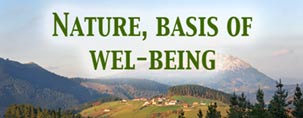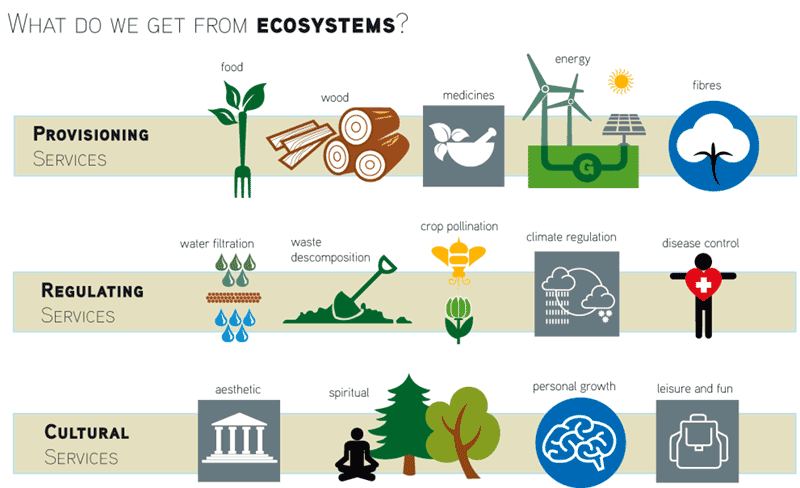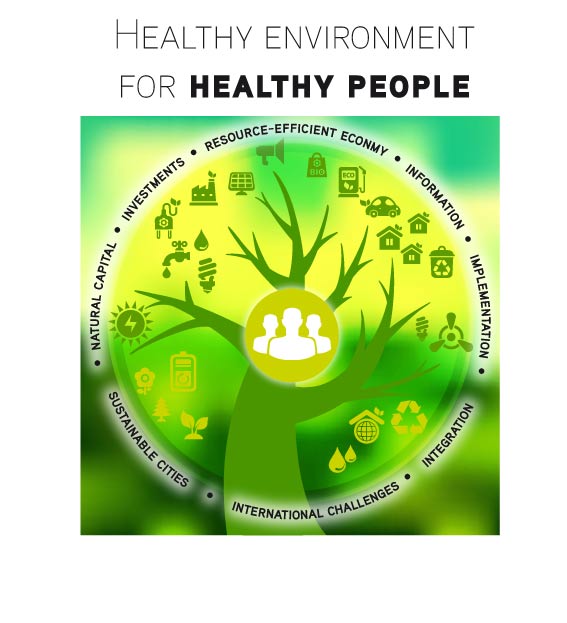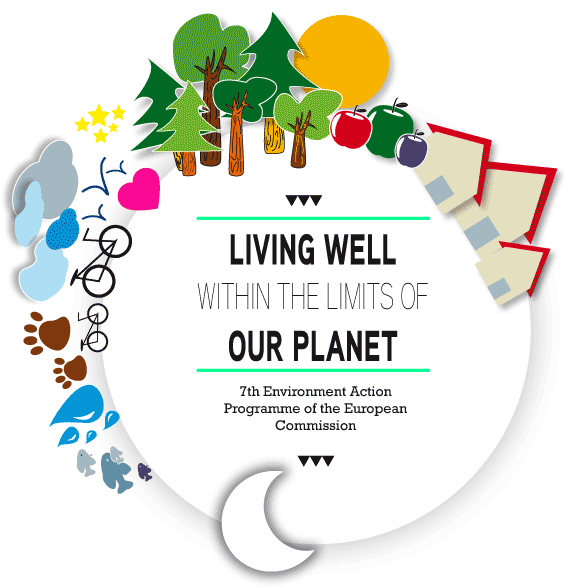On the cover
Ecosystems are our Natural Capital.
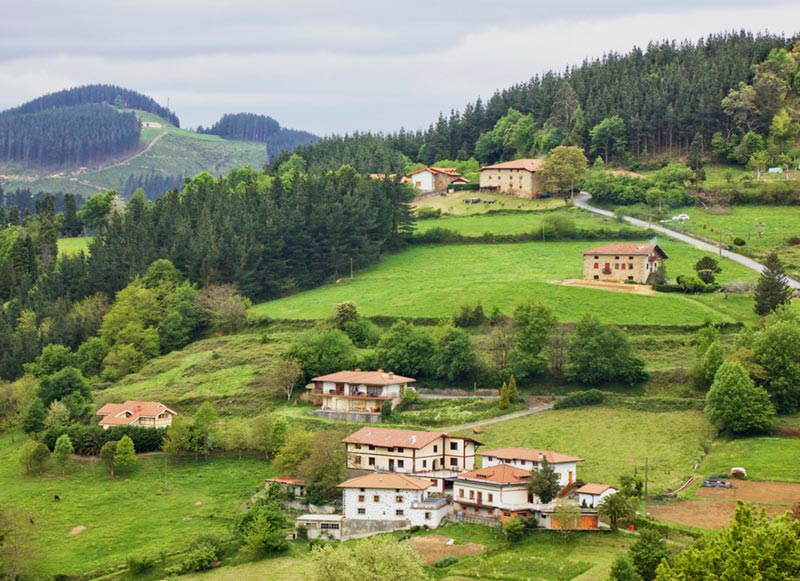
What are the ecosystem services?
The biodiversity of species, i.e. the group of plant and animal species, in their interaction with the habitat are the ecosystems. These species perform different functions in each ecosystem and produce a series of flows of services, which are vital to maintaining our health, welfare and prosperity.
Ecosystem services are the benefits people obtain from ecosystems, including those benefits that people perceive and those they do not perceive.
These services are classified into three groups: i) supply or production (such as food, water, energy), ii) regulation (such as climate control, water purification, pollination), and iii) cultural (education, aesthetics).
Some services, such as supply services are better known and rated, such as food production, either from natural or cultivated ecosystems. But other services, such as maintaining clean air, having quality water, or having inspiring landscapes, are more invisible, so they are not taken into account sufficiently when rating the ecosystems that produce them.
For this reason, it is necessary to highlight the importance of ecosystem services for social development and human wellbeing.
The best decisions based on the best knowledge
Relevant areas for the provision of ecosystem services should be managed in a sustainable way and ensuring the current and future provision of these services. For this we need to improve knowledge, by developing new methods of study, as well as the application of the results to the sectoral policies (agriculture, transport, industry, rural development, cities).
Having detailed information on ecosystem services produced in a territory is essential to identify areas with high values for ecosystem services and to take appropriate land management and other policy decisions. This is the objective of the project for Millennium Ecosystem Assessment in the Basque Country, which studies the state of ecosystems and the services they provide. This work is one of the pioneering research projects for the application of the principles and methodologies of the Global Ecosystem Assessment, of which it is a part.
Science for wellbeing
By better discovering and valuing our ecosystems, as well as the services and benefits they provide, we will achieve a healthier environment, essential to our wellbeing and that of future generations.
Precisely by pursuing this idea, the integration of the state and the evolution of the environment in human development indices is an issue that is being addressed with increasing international interest, following the conclusions of the Earth Summit on Sustainable Development Rio+20.
Living well within the limits of our Planet, is the objective of the European Environment Action Programme to 2020, this involves the protection and conservation of the ecosystems, which are our Natural Capital.
Miren Onaindia
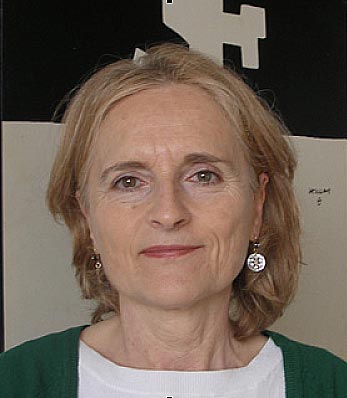
Professor of Ecology and Director of the UNESCO Chair on Sustainable Development and Environmental Education at the University of the Basque Country (UPV/EHU). She has been a guest lecturer at the University of Oxford, University of Veracruz in Mexico and University of Santo Domingo, Dominican Republic. She is a member of the Scientific Council of the UNESCO MAB Biosphere Reserve programme. Her research focuses on the study of biodiversity and ecosystem assessment, applicable to environmental conservation and sustainable land management. She has published several scientific articles, as well as informative and educational publications.

